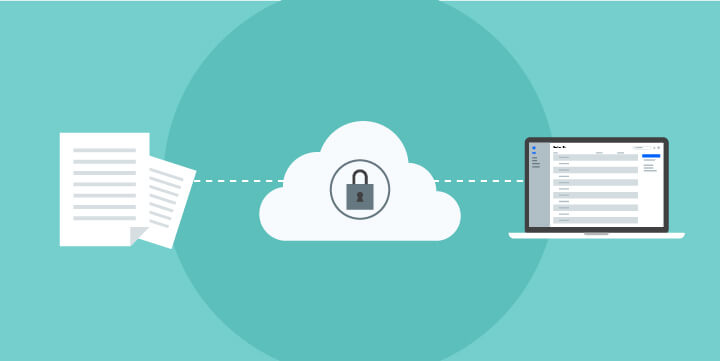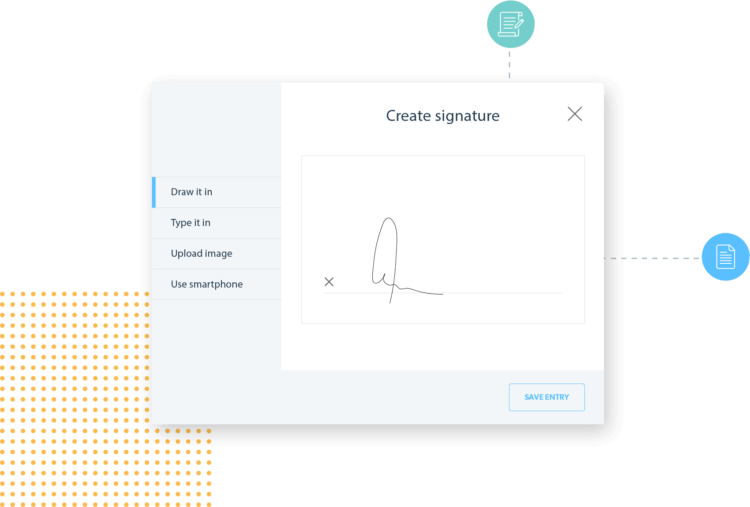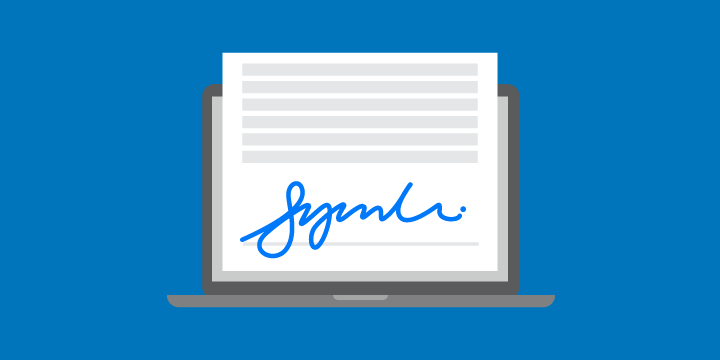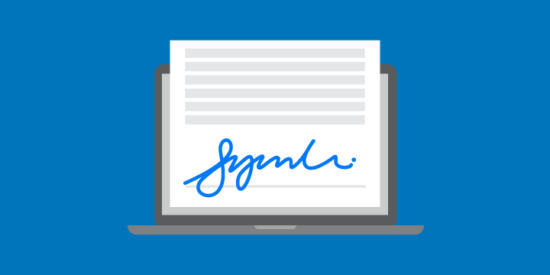Cloud-based technology is making remote legal work more common and virtual law firm models possible (and profitable) in recent years. Now, with the evolving global crisis prompting legal professionals to work remotely, you’ve likely encountered more than a few challenges while navigating the practical considerations of learning how to work from home.
From adapting to technological changes (such as using a remote-access VPN) to collaborating with clients and colleagues from a distance (with video calls becoming a daily reality), many lawyers have had to make significant adjustments when transitioning to working from home. This brings us to adapting one of the most essential aspects of legal work—signatures—to an online world.
Without being able to meet clients in person, is it possible (and legal) to use electronic signatures on legal documents?
In many cases, the answer is yes. In the following guide, we’ll cover the fundamentals of why, when, and how to use electronic signatures for lawyers—regardless of whether you’re working remotely or in the office.
Why use electronic signatures?
Legal professionals have had to quickly widen the scope of their remote-work capabilities in recent years. But there are also several evergreen benefits of using electronic signatures in today’s modern legal workspace.
When used correctly and in the right circumstances, electronic signatures deliver three key benefits to lawyers:
1. They’re more convenient.
Coordinating hand-written signatures for legally binding documents and agreements can be a complex back-and-forth process. Electronic signatures streamline the process, cut down on the risk of human error, and reduce the need to meet in person or deal with physical documents.
2. They make legal work faster.
Even when it’s safe to meet face-to-face, meeting clients just for the sake of a signature eats up valuable time from your work day. E-signatures save everyone’s time and help you move cases along more quickly.
3. They use less paper.
Let’s say your firm is transitioning to a paperless environment or you’re working remotely in a compact home office situation. In both cases, less paper means less risk of filing errors and less time spent digging through paper. Having electronic access to signed documents also makes pulling them up faster and easier in the future.
Are electronic signatures legal?
Electronic signatures can make document signing faster and easier for you and your clients—but are they allowed, and legal? Since the early days of this Millenium, yes.
In 2000, the United States passed the Electronic Signatures in Global and National Commerce Act (ESIGN), effectively making electronic signatures legal in every state and US territory where federal law applies. This means meaning electronic signatures are granted the same legal status as handwritten signatures. In situations where federal law doesn’t apply, most states (except Illinois, New York, and Washington, which have their own statutes about electronic signatures) have adopted the Uniform Electronic Transactions Act. This Act offers a legal framework for the use of electronic signatures in each state.
When e-signatures won’t work

While electronic signatures have the same legal status as hand-written signatures in the US, it’s important to note that there are some exceptions and instances where e-signatures won’t work. For example, in many states, certain types of documents such as wills require a wet signature to be legal. Be sure to familiarize yourself with your state’s requirements and know when an electronic signature won’t cut it.
What makes an electronic signature legal?
While e-signatures for lawyers are legal, it’s important to recognize that they should meet certain legally-binding criteria. The ESIGN Act recommends that electronic signature workflows demonstrate the following:
- A clear intent to sign. The signer must show their intention to sign an agreement electronically (just as they would with a handwritten signature). This could be as simple as a clear “Accept” button or typing out their name.
- Consent to do business electronically. Signers must agree to conduct business electronically. For example, asking signers to “click to accept” a standard consent clause could demonstrate consent.
- The option to opt out. There should be a clause allowing a signer the option to opt-out of signing an agreement electronically (along with accessible instructions on how to sign an agreement manually if necessary).
- Association of signature with the record. For an electronic signature to be valid, the system used has to keep a record that reflects the process the signature was created.
- Signed copies of the agreement or document. Signed copies should be sent to all signers—this process is made easier and, in many cases, automated with e-signature solutions.
- Record retention. Electronic signature records should accurately reflect the agreement and be capable of retention.
You may like these posts
Tips for choosing electronic signature software for your law firm
If starting to use electronic signatures seems like a lot to take on right now, fear not: Adopting e-signatures is simpler than you might think. As with any tool you choose for your legal practice, the key is to carefully evaluate the pros and cons of electronic signature software for your firm.

Ask these questions when considering an e-signature software solution for your firm:
- Is it secure? As with any software tool you use at your firm, security is critical to protect your clients’ data and your firm. When selecting electronic signature software, look for tools built with internationally accepted security standards compliant with local, national, and industry requirements. Read our guide to data security for law firms for more information.
- Is it user friendly? No matter how innovative software is, if your team can’t figure out how to use it, it won’t help you. Ensure your e-signature software is simple for lawyers and legal professionals to use.
- Does it work with your other programs? Electronic signature tools that integrate with your practice management software can streamline your workflows, smooth out the client intake process, and keep you organized. Even better, some tools such as client relationship management software and practice management software may include e-signatures. For example, within the Clio Suite, both Clio Grow and Clio Manage include e-signature functionality.
Electronic signature tools for lawyers
Here are a few electronic signature software options to make the process easier for you and your clients.
Clio Suite

Clio’s e-signature functionality makes it simple and secure for lawyers to create, sign, and store legally-binding documents online. Within the Clio Suite, you can use electronic signatures for easy online document signing — both as part of Clio Grow’s client intake and legal CRM software, and as part of Clio Manage’s document management functionality.
Both Clio Grow and Clio Manage’s mobile e-signature functions empower your clients to sign legal documents from anywhere, even on their mobile device—giving them a simple, user-friendly experience that saves everyone time while working remotely.
Learn more about Clio’s E-Signature Software for Clio Grow.
DocuSign

DocuSign makes it easier to automate the agreement and e-signature process. With Clio’s integration with DocuSign, you can send documents to be e-signed—straight from Clio’s document storage.
Learn more about Sign with DocuSign.
ZorroSign

With an advanced Digital Business Platform (DBP) built on patented Blockchain technology, ZorroSign enables you to safely and securely e-sign documents, build workflows, request signatures, automate approval processes and more. ZorroSign e-Signatures are real signatures (using patented technology), highly secure, legally binding, and fully compliant. With Clio’s ZorroSign integration, users can easily e-sign documents using their ZorroSign account.
Conclusion
While there may be a learning curve to working remotely, lawyers and legal professionals are stepping up and finding ways to innovate, adapt, and work smarter while they’re away from the office. Whether you’re working from home temporarily or permanently, if you know your local rules for e-signatures and the type of documents you’re dealing with—using secure, user-friendly e-signature software will save you valuable time and reduce the need for in-person meetings to collect signatures.
We published this blog post in May 2020. Last updated: .
Categorized in: Technology







